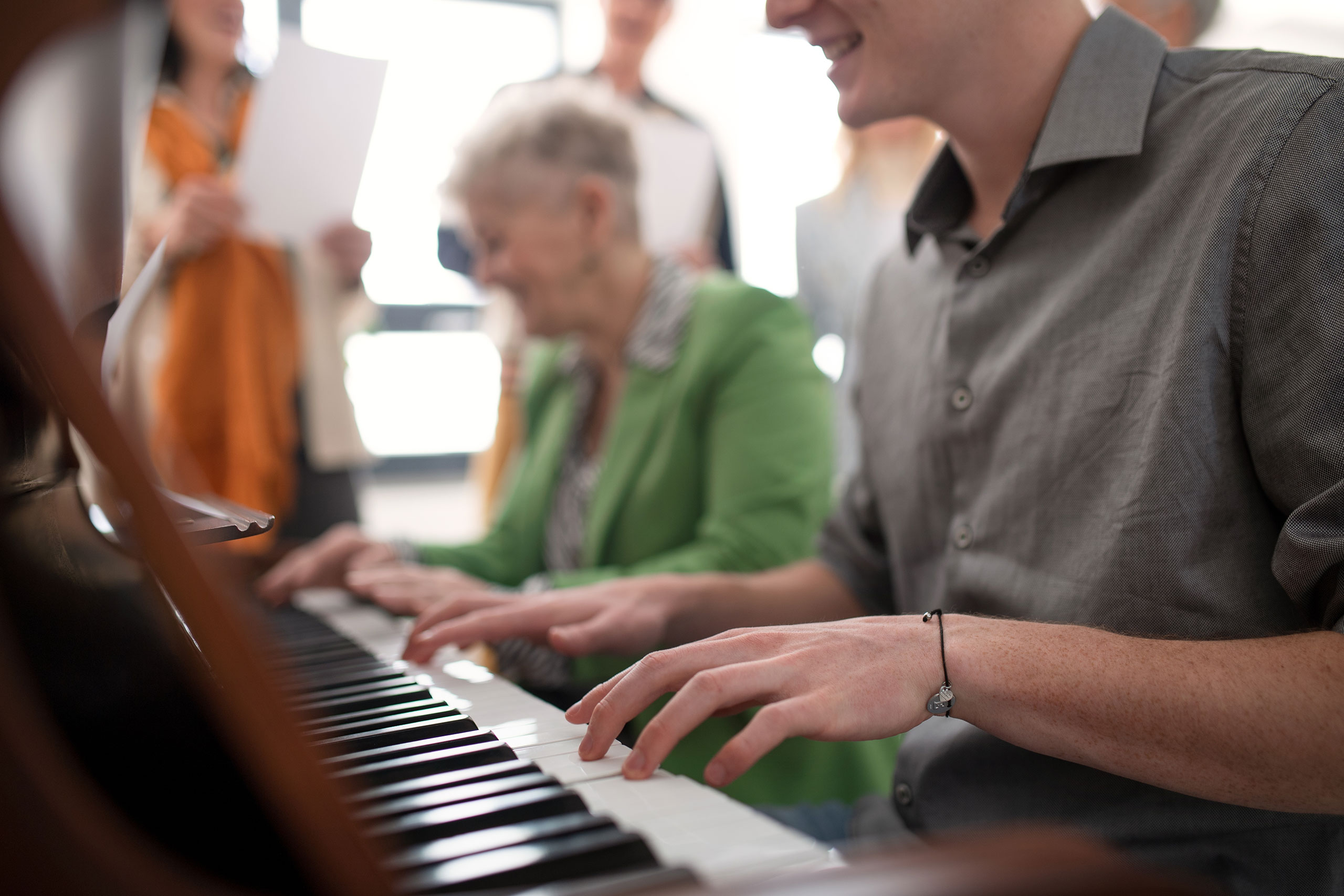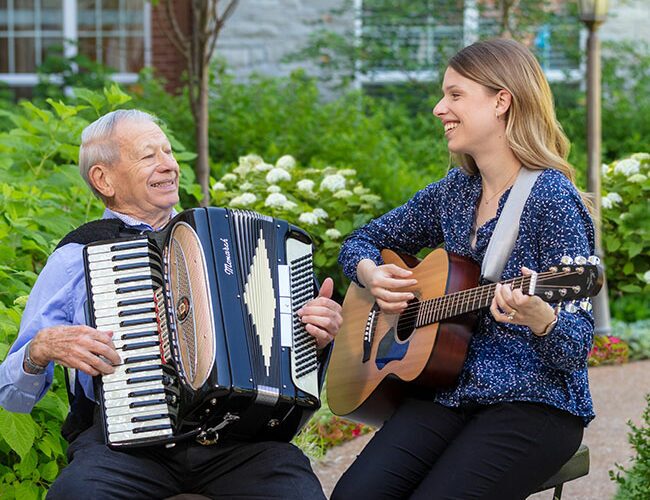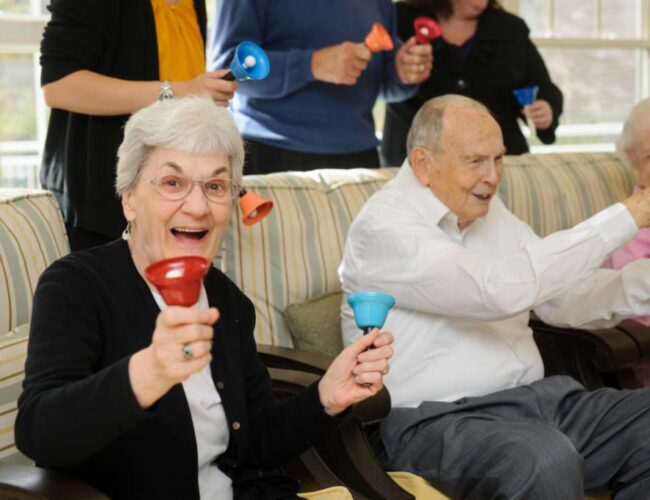Research suggests music has a powerful effect on memory and the psyche, making it a powerful tool to help seniors. Music therapy is proven to enhance memory, diminish stress, improve communication, aid physical rehabilitation, and promote self-esteem. At McKnight Place, our board-certified music therapist uses music to address social, physical and cognitive needs of residents and increase their mental and emotional well-being.
How is music therapy beneficial?
Studies have shown music to be one of the few stimuli to trigger activity throughout the brain rather than in an isolated area, which may be beneficial to maintaining brain health. Sensory and intellectual stimulation using music can help maintain or improve our residents’ quality of life.
Music therapy uses clinical- and evidence-based interventions to accomplish individualized goals. Many people can benefit from this type of therapy, including older adults, those with Alzheimer’s and other age-related conditions, people with physical disabilities and those who suffer from acute and chronic pain.
The goal is to find a way to interact, whether by creating sounds, singing along, moving to the beat or listening for enjoyment. Play an instrument, sing a song, or just listen and tap your feet – the response matters! Memories are awakened and emotions come alive when songs strike a chord in the hearts of listeners. Music therapy channels that response, bringing healing and joy.
Our approach
At McKnight Place, we use a variety of musical techniques based on the strengths and needs of each resident and to help identify goals and work toward accomplishing them.
Our group and individual music therapy sessions provide options for every interest and need, from entertainment to exercise. Group therapy allows for socialization while benefiting from the healthful aspects of the exercise. In addition, private sessions are available to address specific needs for individual residents.
Many of our daily music therapy groups consist of a combination of learning, discussion, and music making with the residents. Some groups explore a specific music history topic where we learn about and listen to music from composers, songwriters, and singers throughout the ages. Residents may also engage in music-structured games to improve memory and cognition. Other groups may consist of active music making with the residents, such as sing-alongs, hymns, or show choir. The full calendar of music events can be found in the monthly activity calendar.
To learn more about the physical, mental, and emotional benefits of music and music therapy or private lessons, please contact us for more information about our Music Therapy and other therapy programs.



